Blood of laboured childhoods is on all hands

Children are the most beautiful gift of nature and childhood is the most beautiful of life's seasons. It is a combination of leisure, carelessness and happiness, and perhaps our only chance to live free. Children’s minds are so free from fears and evils that if there is a fire in front of them, they try to catch the flame.
However, with a brutal initiation in a frigid society, our children are robbed of their innocence too soon. A practical example of this is offered by the horrific story of Rizwana, a minor housemaid who was allegedly subjected to torture at the hands of the judicial officer’s wife Somia Asim in Islamabad.
Nexus between poverty and child exploitation
Fourteen-year-old Rizwana was brought to Lahore General Hospital with broken bones and severe wounds on her head which were infested with maggots. She has undergone several surgeries so far and when I spoke to her mother, the infection had once again started to spread through her body.
“We are a family of 13, my husband, mother-in-law, and 10 children. Rizwana was the only one working among my children. She studied till class three but after that we could not afford her education and we had to send her to work in Rawalpindi but the decision turned out to be gravely wrong,” Rizwana’s mother, Shamim, said.
Only Rizwana knows the agony that she had to suffer for seven months which has not ended yet. Now her parents are also going through an unspeakable pain accompanied by deep guilt of leaving their child unsupervised for a long period of time.
“She didn’t want to go away from us but we had to convince her due to inflation and financial constraints. But I will never send her to work again even if we don’t have enough to eat,” Shamim added.
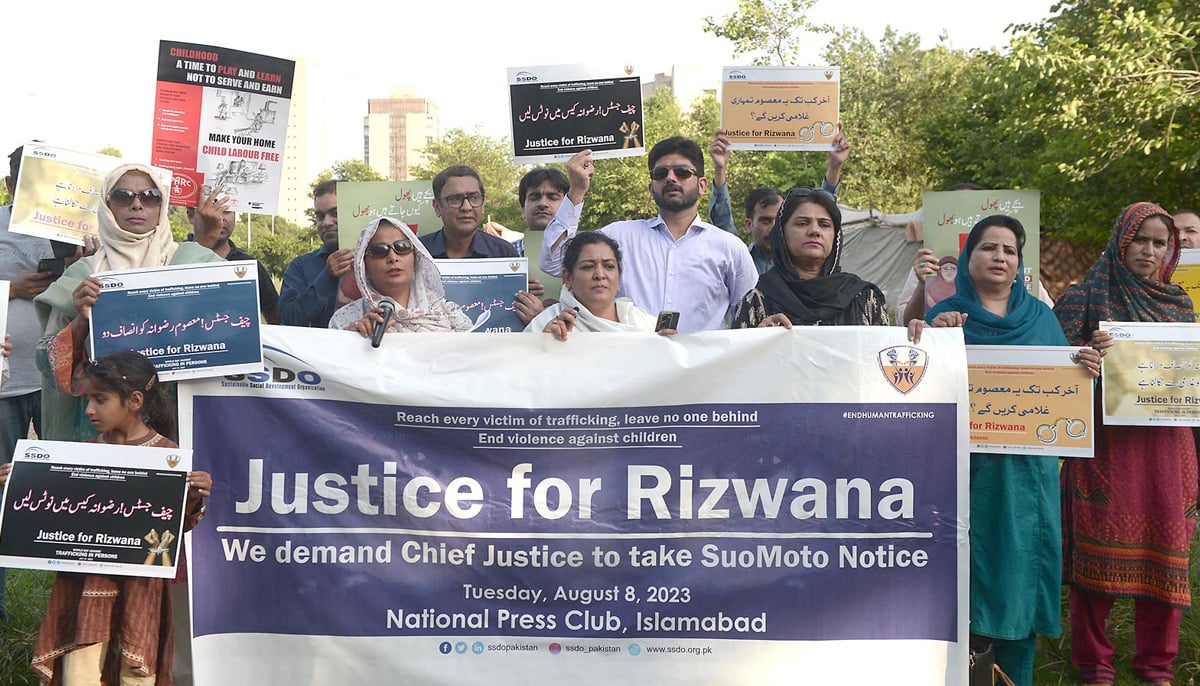
Shamim told me that her eldest daughter, who is now 22 years old, was in 13th standard when she dropped out, while three of her sons, aged between 15 and 20 are now getting vocational training. Not only does she want Rizwana to get justice before her wounds heal, but also wants to educate all her children yet her financial circumstances do not allow her to do so.
Now who is to blame for Rizwana’s ordeal? Her parents, who remained ignorant of what was being done to their daughter? Or the state that has once again failed to protect the rights of its citizens to survival, safety, and education? Along with bringing the criminals to their end, it is also vitally important to eliminate the factors due to which Rizwana and many other children become a victim of cruelty. Otherwise, parents will be left with no option but to send their children to work again and again.
Justice delayed
Rizwana’s case is not a first of its kind. Javeria Rafi was just 12 years old when her father took her to be recruited as a maid at a doctor's house in DHA Karachi in 2017. She was subjected to violence during three months of her employment. “I told my father when he came to collect my salary after two months but he didn’t pay attention,” said Javeria.
Then one day, her employer accused her of stealing a ring, and along with her husband and a friend, burned her with an iron and hair straightener, subjected her to brutal torment, threw her unconscious on a deserted road in DHA, and informed her father to pick her up from there.
Javeria, now 18 years old, is staying at Sarim Burney’s shelter home in Karachi. Her family includes her father and an elder sister but she has not met them in years.
“My father was demanding monetary compensation from my employer and wanted me to pardon her in front of the judge. On my refusal, he cut all ties with me,” told Javeria.
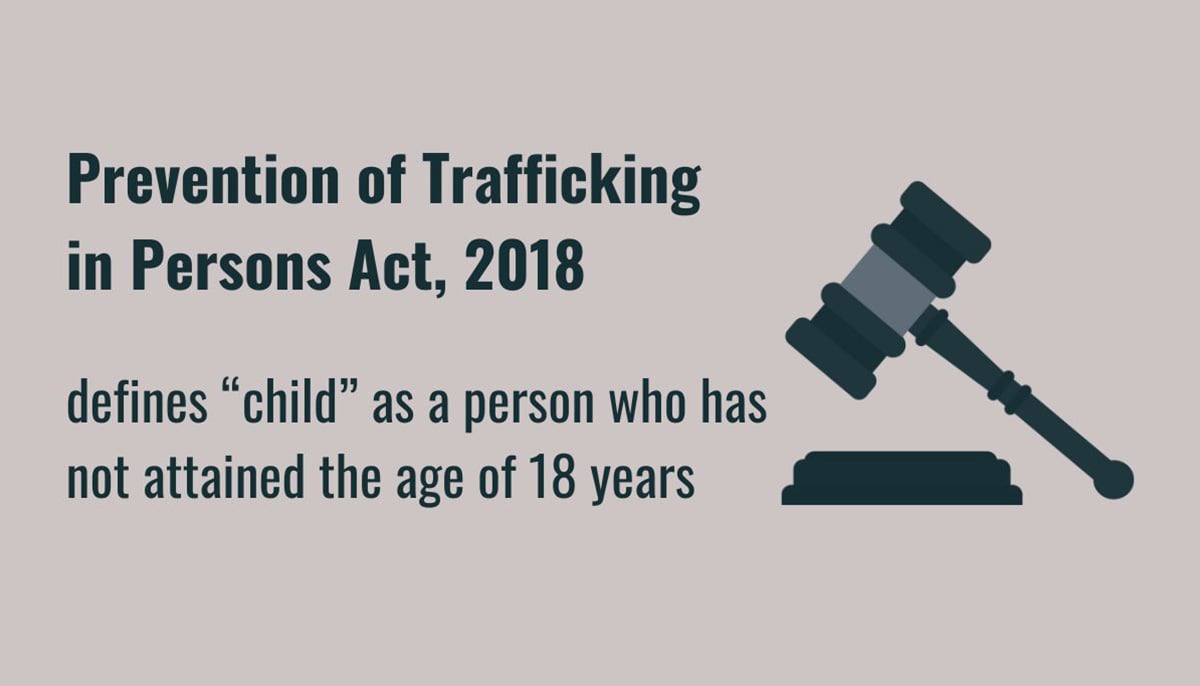
Shelter in charge Huma Irshad told Geo.tv that Javeria's father first went to her employer and asked for compensation but she refused. He then contacted Sarim Burney's trust which helped him register an FIR and the woman was arrested. Considering his financial situation, the trust also provided him with an auto-rickshaw but he was constantly trying to somehow cash in on the injustice done to his daughter.
On the day I met Javeria, she spoke to her father on the phone after three years and expressed her desire to meet him but to no avail. Burn marks on her hands are the visible scar of what happened to her but the hidden scars of psychological toll are far deeper and more lasting. Even if her eyes got wet while narrating the terrifying tale, she still suppressed her sobs. However, her tense body, apparent anxiety, and confusion were reflected in the strong emotions she was feeling inside.
“I just want to confront my father and ask him why he did this to me,” Javeria lamented.
Violence against children hits the headlines every few days. It remains in the public imagination for a few weeks and then we get on with our lives. Whereas victim ends up suffering even more at the hands of the justice system which is notorious for its delays and ineffective handling of case proceedings. Here, cases take years to resolve or remain inconclusive. This results in a lack of faith in the system to dispense justice. In fact, it is seen as a weapon in the hands of the powerful against the weak and that is why most cases go unreported.
In the case of Javeria, the accused used her influence to get bail and now she doesn't even appear in court. While Javeria is still awaiting justice even after six years.
Not a child-friendly country
Pakistan has signed and ratified the UN Conventions on the Rights of the Child 1990 as well as ILO Conventions 138 and 182 on the Minimum Age and Worst Forms of Child Labour, which obligates it to take all appropriate legislative, administrative, and other measures to implement the rights enshrined in the conventions. Despite this, global statistics sketch a grim picture.
The country ranked 152 out of 193 countries in the Kids Rights Index. The United States removed Pakistan from its trafficking watch list in 2022 and the State Department's 'Trafficking in Persons (TIP)' report changed Pakistan's classification to 'Tier 2'.
However, the report called on Pakistan to increase prosecutions and penalties for all forms of trafficking, including bonded labour, and to impose significant prison terms on those found guilty of trafficking. In 2023, the country remains in Tier 2 on the trafficking scale and in case of lack of progress, it will be put in Tier 3, after which sanctions will be imposed.
Constitutional provisions
The Constitution of Pakistan stipulates the elimination of child exploitation and the provision of all kinds of fundamental rights. However, those provisions do not balance protection with the longer-term well-being of children. Article 11 prohibits the employment of children under the age of 14 years and child labour in hazardous places, all forms of slavery, forced labour, and human trafficking. Meanwhile, the constitution also has a provision that ensures free and compulsory education to all children of five to 16 years.
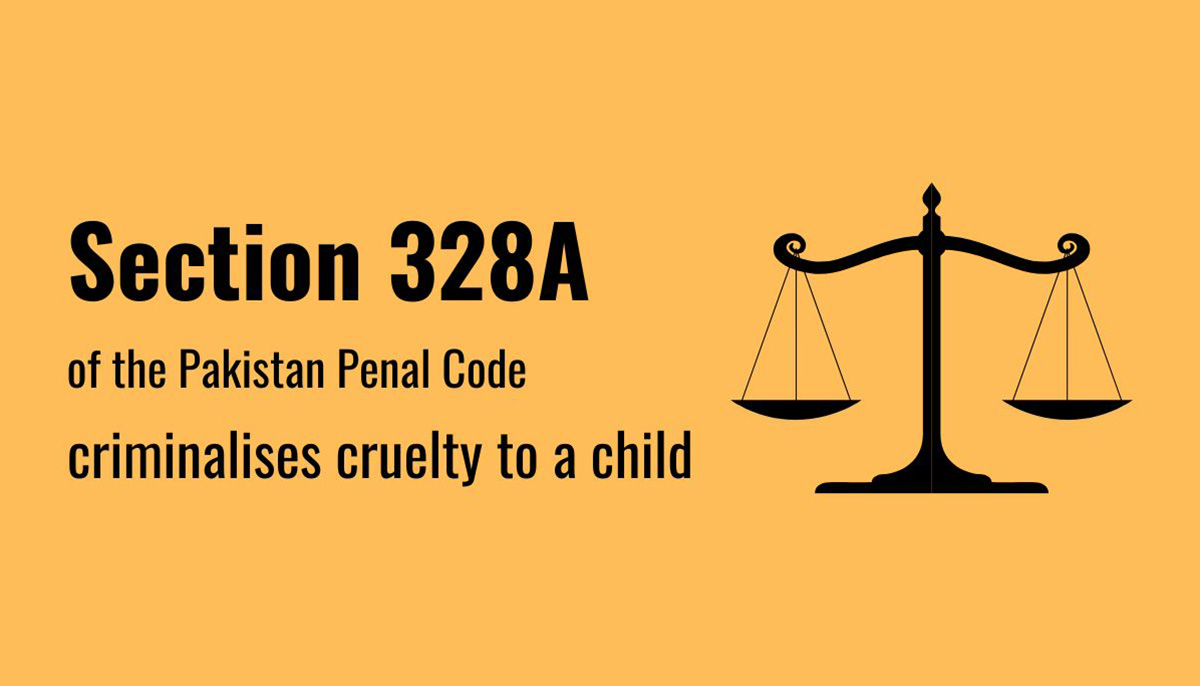
“The two provisions appear to be in flat contradiction to each other,” said Human Rights Activist Advocate Wajahat Ali.
He asked how a child, aged above 14, will go to school if they are working full-time. They will suffer even if work and education are combined, he maintained.
Moreover, Article 37(e) of the supreme law further states that the “state shall make provision for securing just and humane conditions of work, ensuring that children and women are not employed in vocations unsuited to the age or sex.” However, the practice of employing children for household help is prevalent across the country.
Limitations and translation of law
The Islamabad Capital Territory Domestic Workers Act 2022 prohibits the employment of children under the age of 16 years. Moreover, employing a child who has not completed 15 years of age is an offence under Punjab Domestic Workers Act 2019.
According to the laws of Sindh, Balochistan, and KP, the age limit is 14 years. Meanwhile, these laws also define the working conditions for children and adolescents. In addition, severe punishments have also been earmarked against the violators.
Section 328A of the Pakistan Penal Code criminalises cruelty to a child. Its provision suggests that the sentence should not be less than one year and may be extended to three years for any act that causes physical or psychological injury to a child.
Moreover, the Children (Pledging of Labor) Act, of 1933 prohibits arrangements for the pledging of children’s labour and the employment of children whose labour has been pledged. It does not only impose a penalty on the employer but on the parents or guardians too.
“Parents were also oblivious in Rizwana’s case. As a result, the child was subjected to constant torture. So, the parents are also responsible but a separate case has to be made against them for which a separate FIR has to be lodged first,” Ali said.
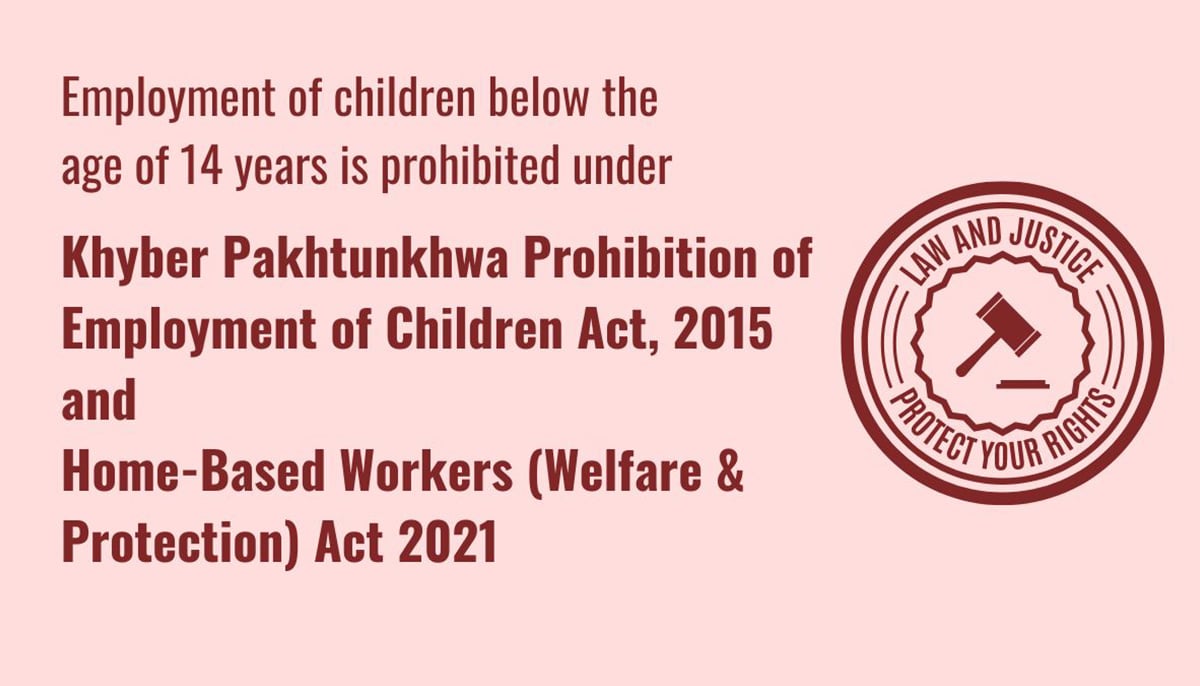
The Prevention of Trafficking in Persons Act, 2018 defines “child” as a person who has not attained the age of 18 years. It criminalises compelled labour which includes involuntary servitude, slavery or slavery-like practices, or debt servitude and forced labour. Offenders shall be punished with imprisonment which may extend to 7 years or with a fine which may extend to one million rupees or both.
Children are often forced to do domestic work in the bonded labour system by their guardians after receiving a peshgi (advance) even though the Bonded Labor System (Abolition) Act has been in place since 1992 which made this practice illegal across the country.
However, mere lack of implementation does not create a problem. There is a lack of administrative capacity while some laws have drawbacks and limitations too.
The Punjab Domestic Workers Act 2019 lays down the legal age of employment as well as the terms and conditions of employment for children and adolescents, but it has lacunas too.
“PDWA does not address the issue of paying wages to the children and is silent on abuse, harassment, and violence against children and adults working as domestic workers. It allows children below 18 years to do light work in a domestic setting but “light work” should be defined in a clear and detailed manner. It ignores the critical aspect of trafficking and does not provide for rescue, reparation, and rehabilitation of the child,” the lawyer said.
According to Section 2 of the Sindh Child Protection Authority Act 2011, exploitative economic activity i.e., child domestic labour falls in the purview of child abuse. Advocate Wajahat mentioned that for the effective implementation of this law in the province, it is necessary to strengthen the infrastructure and administrative capacity of child protection units.
Law enforcement agencies are informed after receiving a complaint on 1121, but a strong follow-up mechanism also needs to be developed.
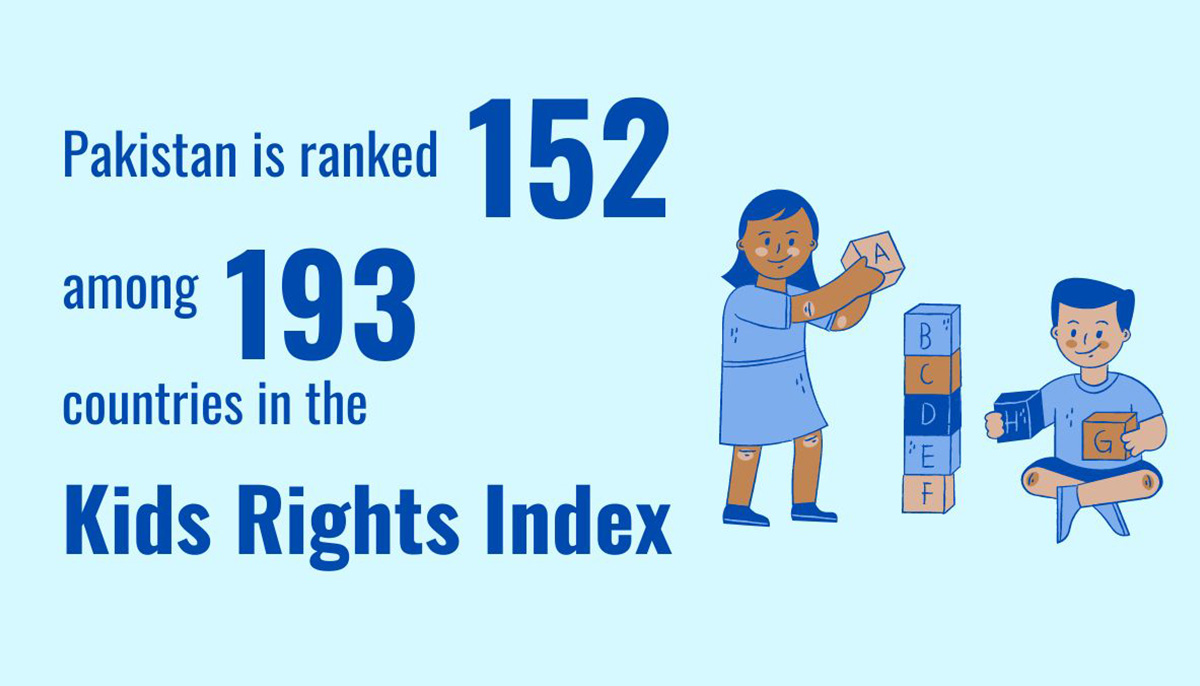
Similarly, employment of children below the age of 14 years is prohibited under the Khyber Pakhtunkhwa Prohibition of Employment of Children Act, 2015, and the Home-Based Workers (Welfare and Protection) Act 2021.
While children between the ages of 12 and 13 years are allowed to do light work, that too for just 2 hours in the presence of a family member, “These acts do not include child domestic labour in prohibited occupations. Although the KP Child Protection and Welfare Act 2010 provides protection for children at risk and in need of care it does not categorically include children who are in domestic servitude,” said Ali.
Understanding the problem is half the solution. Before we can solve a problem, we need numbers to truly understand the severity and impact of a particular problem so that effective change can be made through informed decision-making.
Our provincial governments do not have recent figures on child domestic labour. Currently, the Balochistan government is reportedly working on the Child Labor Survey to counter the increasing number of underage children working in the province. According to the reports so far, the survey will provide information about children working at construction sites, coal mines, garbage collection, and automobile workshops
Collective action to combat child labour/child domestic labour
We can see the problem but are we interested enough to learn about it, raise the question, and find ways to solve it? Despite their constitutional right to free and compulsory education, why 23 million children aged five to sixteen are unable to attend school? Why is it legally permissible for a child to work at an age when he or she is not even old enough to finish schooling? Don’t we have any better ways to address the economic desperation that forces parents to send their children to work?
The last Child Labor Survey was carried out in 1996. This speaks volumes about how we have been neglecting our children for years. We made laws simply to “comply” with international legal rules and not to solve enduring human problems. Instead of creating and implementing laws that protect children from exploitation, we facilitate it. In fact, we still seem to prefer to focus on making false and unsubstantiated claims to obscure the harsh truth.
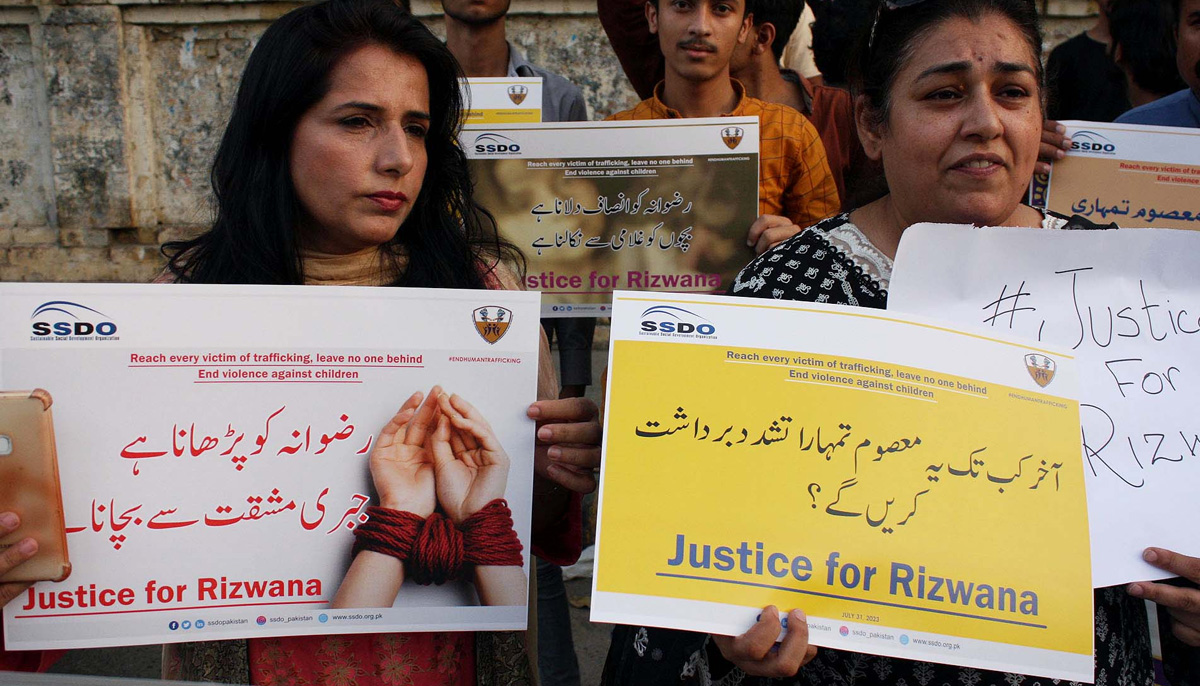
We need coherent and collaborative efforts to end this exploitation. It is vitally important to address the socio-economic factors due to which child labour exists, rather than approaching the issue in isolation. Therefore, policies and programmes should be effective in increasing household welfare so that children do not have to work to increase household income. Government should allocate sizeable investments in education, health, social security, and the provision of decent work for parents.
People are well-versed but their sense of entitlement over another being as well as the community acceptance of child domestic labour is the reason why they do not see children as children. Therefore, we have to stay with the issue and get our message across in as many ways and to as many people as possible. Government, civil society, and other partners should carry out persistent campaigns to sensitise people about the extent of the problem and the harm it causes to our children.
Meanwhile, federal and provincial governments should improve their child protection systems by ensuring a vigilant monitoring system as well as the availability and accessibility of services and support to children who are abused and exploited.
Child protection centres or units must be established at the district level while labour departments, child protection bureaus, and authorities should work in coordination to close the gaps that allow child labour and child domestic labour to exist.
Legislation’s shortcomings must also be addressed and enforcement mechanism needs to be strengthened. Courts should clear all such pending cases and punish perpetrators according to the law.
Above all, it is the duty of all of us to ensure that every child enjoys their right to grow up in a society that loves them, cares for them, respects them, protects them and it requires more will than ability.
Hira Saeed Farooqui is a Karachi-based freelance journalist. She tweets @HiraSaeed06
— Header and thumbnail image by Pixabay




